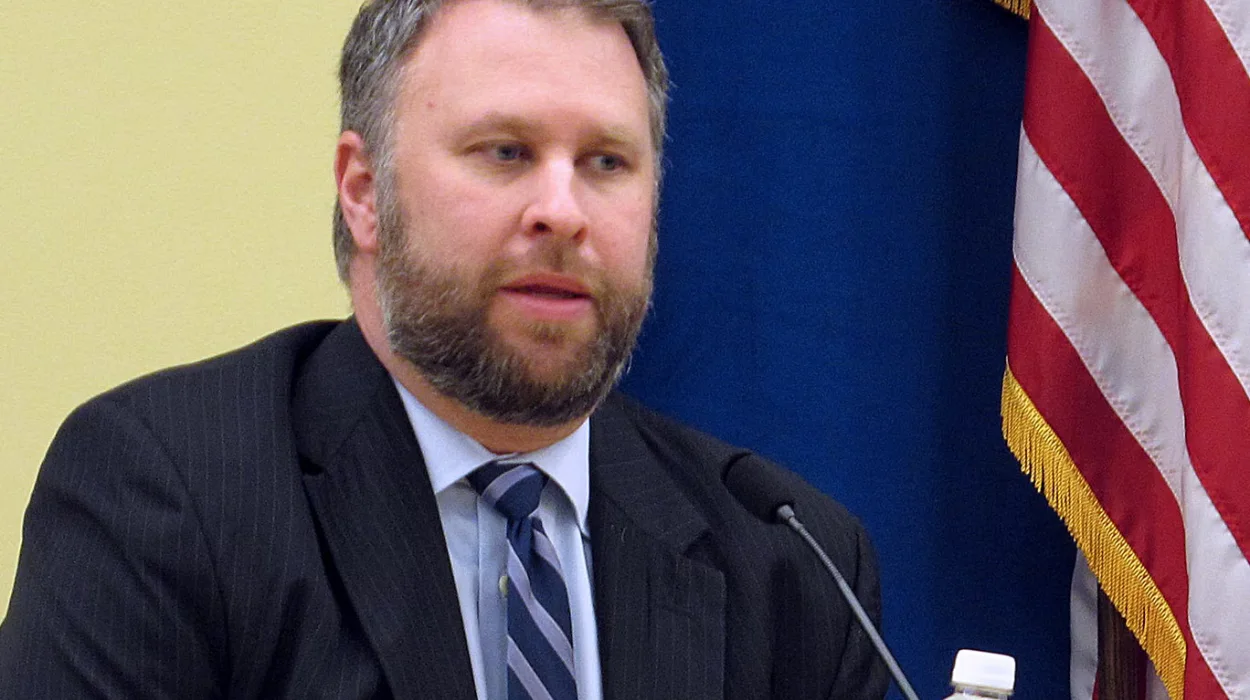Former Ohio House Speaker Larry Householder and a former lobbyist were found guilty of racketeering in a $60 million bribery plot on Tuesday, which a federal appeals court affirmed. The prosecutor had called the scam “likely the biggest corruption scheme in the state’s history.”
The Department of Justice, which had obtained the convictions in March 2023 following a years-long investigation, won the case in a unanimous decision by a three-judge panel of the Sixth Circuit U.S. Court of Appeals in Cincinnati. Matt Borges, a lobbyist and former leader of the Ohio Republican Party, received a five-year jail sentence, while Householder, a Republican, received a 20-year sentence.
In order to elect allies, secure power, enact a $1 billion bailout of two of its associated nuclear facilities, and then protect the measure, known as House Measure 6, against a repeal attempt, Householder was found guilty of orchestrating a $60 million bribery conspiracy financed by Akron-based FirstEnergy Corp. The main purpose of Borges’ involvement in the plot, according to the prosecution, was to obstruct a ballot drive to abolish the corrupt law. He was specifically charged with bribing a person, leading the attempt of $15,000 to obtain inside information. In the end, the referendum was not included on the ballot.
Householder’s longtime personal and legal advisor Scott Pullins described the day as “even sadder for constitutional free speech and the rule of law” and described it as a “sad and disappointing day” for men, their families, and supporters.
“Mr. Householder raised undisclosed, unlimited donations for a 501c4 organization that supported him and his political allies, just like former Ohio Speakers Cliff Rosenberger and Ryan Smith and current Speaker Matt Huffman,”
he said in a Substack article.
“However, Mr. Householder was the only one targeted for prosecution by the federal government.”
The only long-shot legal alternatives left for Householder and Borges are to request a review by the whole Sixth Circuit or to petition the U.S. Supreme Court for what is known as certiorari in the hopes of having the country’s top court take their case into consideration. Seldom are both kinds of demands fulfilled.
Their criminal defence lawyers and a representative of the Cincinnati U.S. Attorney’s Office were contacted for comment.
In an attempt to obtain a respite, Householder filed six claims, but his appeal was denied on each of them. He claimed that he was given incorrect jury instructions, that his sentence was excessive for the circumstances, that there was inadequate and inadmissible evidence, that his right to counsel had been violated, and that the judge had been biased.
The 65-year-old lawmaker said that the government was incorrect to label his actions as part of a bribery plot. Rather, he transferred FirstEnergy’s funds into a network of covert dark money accounts under his control as legitimate political contributions. According to federal prosecutors, the money was provided to the Householder as a quid pro quo to make his actions unlawful in exchange for the approval of House Bill 6.
In his appeal, Householder also criticized U.S. District Judge Timothy Black, claiming that Black had not adequately explained to the jury that bribery must be proven by an agreement and that Householder must have agreed to act “on a specific and focused question or matter” at the time of the agreement. All of his allegations were deemed unsuccessful by the panel of judges. Three legal technicalities were at the centre of Borges’ appeal. They all failed, too.





